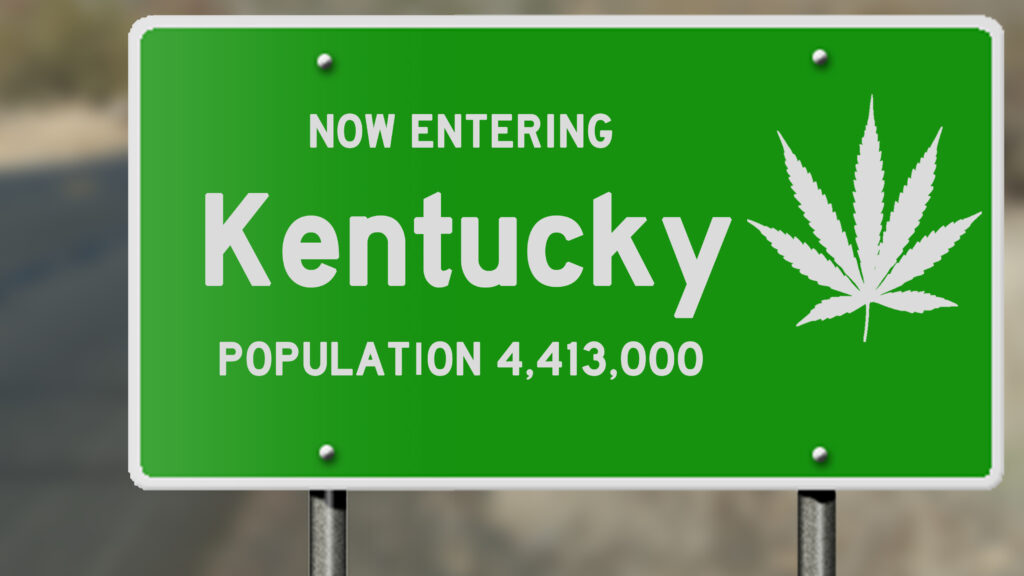Employment Law Report
What Employers Should Consider as Medical Marijuana Inches Closer to Reality in Kentucky

Written by: Tyson Gorman with assistance from Robbie DeWeese, Wyatt Summer Associate
On March 31, 2024, Kentucky became the 38th state to legalize medical marijuana[1] after Governor Andy Beshear signed Senate Bill 47 into effect (however, Kentucky has not (yet) gone as far as 21 other states which also allow recreational marijuana). With this new law, there are many questions that remain for employers relating to drug testing and legal compliance. The following summary informs employers of what the bill includes and how they should prepare for the new law to go into effect on January 1, 2025.
Details about the bill itself:
The new bill will allow patients with the following medical conditions to register to become a cardholder:
- Cancer of any form, regardless of stage
- Chronic nausea or cyclical vomiting syndrome, which is resistant to other medical treatments
- Post-traumatic stress disorder
- Chronic, severe, intractable, or debilitating pain
- Epilepsy or any other seizure disorder
- Multiple sclerosis, muscle spasms, or spasticity
For now, medical marijuana will be legal for patients strictly with the state conditions, but the Kentucky Center for Cannabis has been tasked with the job of identifying other conditions that may benefit by the use of cannabis. Card registration will be directed by the Cabinet for Health and Family Services. Cardholders will be permitted to possess a 10-day supply of cannabis edibles, tinctures, or topical products (not exceeding 10 mg of THC per serving). At home, patients will be permitted to maintain a 30-day supply of the aforementioned qualifying products.
The law also protects businesses dealing in the cultivation, production, and dispersion of medical marijuana. For qualifying businesses, the Cabinet for Health and Family Services will also distribute licenses. Businesses hoping to obtain a medical marijuana license may apply for one between July 1st, 2024 and August 31, 2024. If there are more applications than available licenses, a lottery will take place in October.
National Trend Towards the Federal Legalization of Medical Marijuana:
It is important to note that marijuana is still illegal under federal law, which will impact federal contractors who are subject to the Drug Free Workplace Act. However, with more and more states joining the trend to legalize medical marijuana, there has been a stronger push by lawmakers for changes to be made to federal law.
On May 16, 2024, the United States Attorney General’s Office submitted a notice of proposed rulemaking, beginning the formal process to consider moving marijuana from a Schedule I to a Schedule III controlled substance. This move kicks off a lengthy process run by the Drug and Enforcement Administration (DEA), which will be collecting information and seeking public opinions in regard to the matter.
While the possibility of marijuana being removed from a class of drugs that also contains heroin and LSD may not be quite as close to full legalization as some might have hoped, this move does represent a step towards making marijuana more accessible at the federal level. For federal contractors, the move to Schedule III would likely have major repercussions on drug testing because the new classification would permit medical use.
How Kentucky Employers will be affected:
While the passage of Bill 47 will legalize medical marijuana for qualifying patients in Kentucky, employers will still have the ability to restrict the use of medical marijuana by employees and maintain a “drug-free workplace”:
- Employers will not be required to accommodate or permit the use, consumption, or possession of medical marijuana within the workplace.
- Employers will possess the power to prevent cardholding employees from being able to operate machinery, equipment, and tools if they believe there is a possible safety risk.
- Employees will be prohibited from being under the influence of medical marijuana while performing various tasks within their scope of work (e.g., operating a vehicle).
- In order to maintain a safe workplace and prevent unreasonable risks of harm, employers will have the power to drug test employees in “good faith” if they believe they are under the influence of medical marijuana while at work.
- Employers are not restricted from including contract provisions that prohibit the use of medical marijuana by employees.
Although several of the subject medical conditions may qualify as a disability under the Americans with Disabilities Act (ADA), employers will not be required to accommodate those disabilities by permitting the use of medical marijuana within the workplace. The main reason for this exception to the ADA is because medical marijuana is still illegal under federal law.
As of now, employers are protected from any claims by employees for discrimination or wrongful discharge if the matter is related to medical marijuana misuse. Employees who have been discharged due to a violation of an employer’s drug policy will be ineligible for unemployment benefits. The new law will not require private health insurers or workers’ compensation carriers to reimburse employees for any costs related to use of medical marijuana.
What Employers Should do to Prepare:
Employers should review their drug testing policies before the start of 2025. Even with the legalization of medical marijuana in Kentucky, employers are entitled to maintain a “drug-free workplace” in order to protect the health and safety of their employees and customers.
Employers with questions related to medical marijuana, and how it might affect their business, are encouraged to get in touch with a member of the Wyatt Labor and Employment practice group.
[1] The terms “medical marijuana” and “medical cannabis” are interchangeable. See KRS §§ 218A.010(28) and KRS 218B.010(15)
